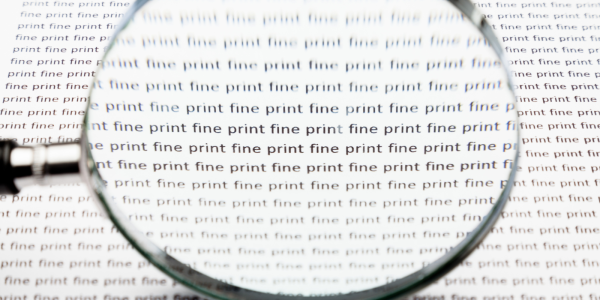Higher pension savings allowance: good news for retirees returning to work – but watch the small print
The Low Incomes Tax Reform Group (LITRG) has welcomed the announcement in today’s Budget1 that the Money Purchase Annual Allowance (MPAA) will increase from £4,000 to £10,000 a year from 6 April 2023. But LITRG is warning savers that they still need to notify their pension providers if they trigger the MPAA.

The MPAA limits the amount savers can invest into a pension scheme each year free of tax where they have already withdrawn money from their pensions under the ‘freedoms’ introduced in 2015. 2 Those who have not triggered the MPAA3 are subject to the normal – usually much higher – Annual Allowance rules for pension savings.
The increased MPAA means that savers who have taken money from their pension under the ‘freedoms’ will now be able to save more money into their pensions free of tax.
LITRG is urging these savers to notify their pension providers that they have triggered the MPAA. This is a legal requirement, but it might not be obvious, particularly if someone is auto-enrolled into an employer’s pension scheme. Failure to do so could result in HMRC issuing penalties for failure to notify, even if they do not breach the allowance.
Antonia Stokes, Technical Officer at the Low Incomes Tax Reform Group, said:
“Given the current cost of living crisis, it’s possible that some retirees may decide to return to work to supplement their pension income.4 Equally, some people may have needed to access their pension savings before taking full retirement to help meet rising living costs.
“Raising the MPAA to £10,000 should help to reduce the number of people who face tax charges because they are saving more into their pensions.5
“Such charges could be a particular risk for those who are continuing to work as employees, who are subject to the ‘auto-enrolment’ pension rules. People saving for a pension under auto-enrolment might not always be aware of the amounts being saved into a pension scheme on their behalf.6
“However, the increase does not mean that savers can relax. This is because people who flexibly access their money purchase pension savings may not be aware of the MPAA and the obligations that it brings.
“The publicity that accompanies the increase in the allowance to £10,000 therefore needs to raise awareness that anyone who flexibly accesses their pension savings must tell any other existing or new pension providers that they have triggered the MPAA.7
“This requirement applies where you continue to pay into other pensions, even if you are not at all likely to exceed the MPAA and face a tax charge. HMRC can charge penalties if the notification is not made.”
Notes for editors
- See Spring Budget 2023. Note that the Budget also includes increases to other pension limits from 6 April 2023:
- The Annual Allowance will increase from £40,000 to £60,000. This allowance applies to people who have not yet flexibly accessed a defined contribution pension scheme and who are not otherwise caught by the Tapered Annual Allowance (see below).
- The minimum Tapered Annual Allowance will increase from £4,000 to £10,000. This allowance applies to certain high earners. The adjusted income threshold for calculating the Tapered Annual Allowance will also increase from £240,000 to £260,000 per year.
- The Lifetime Allowance – to be abolished entirely.
- A person can usually access their pension savings once they have reached the normal minimum pension age (NMPA), which is currently age 55 (rising to 57 from April 2028). Accessing money purchase pension savings using the pensions ‘freedoms’ (also known as ‘pension flexibility’) rules introduced from 6 April 2015 triggers the money purchase annual allowance.
- The MPAA is only triggered in certain circumstances. It is NOT triggered in the following situations:
- The individual has only taken a pension commencement lump sum – also referred to as the 25% tax-free lump sum.
- Where the pension fund is used to purchase a fixed lifetime annuity.
- Where the pension has been encashed under the small pots rules.
A full list is found in the HMRC manuals at PTM056530.
- See LITRG’s recent News Article discussing the tax implications for retirees returning to work.
- The MPAA limit applies to the gross pension contributions made during the tax year, including both individual and employer contributions. If the MPAA is exceeded the pension saver will face a tax charge on the excess gross contributions.
- LITRG’s submission to HM Treasury dated 13 February 2017 raised concerns when the MPAA was originally lowered from £10,000 to £4,000. We also noted in our 2020 paper ‘A better deal for the low-income taxpayer’ (page 27 of the full document) that as a general rule fixed amounts in tax legislation, such as the MPAA, should be subject to regular uprating.
- See HMRC manuals at PTM166400.
